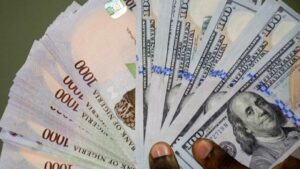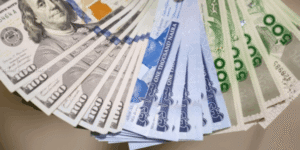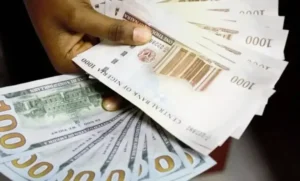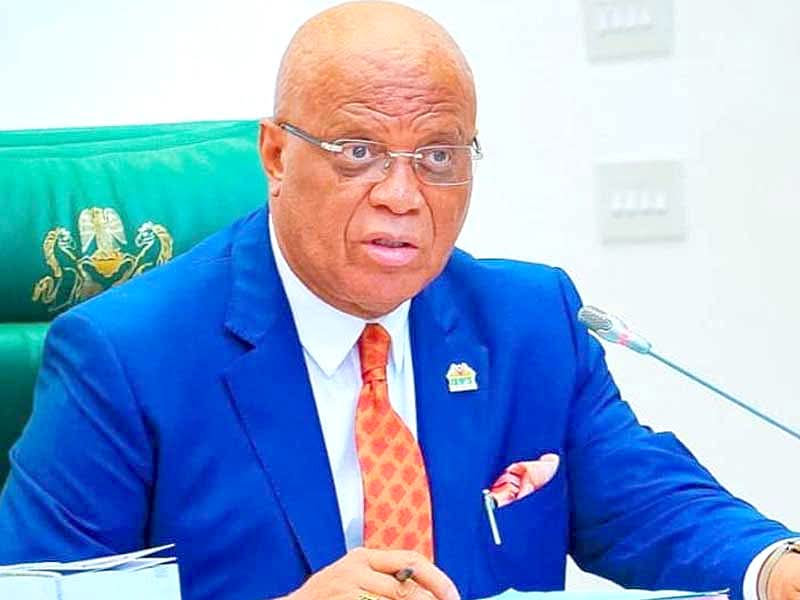
Naira Continues Appreciation Against Dollar Across Official and Black Markets At N1,541/$1
- Business
- 30.08.2025
- 1 Comment
- 233
Naira Continues Appreciation Against Dollar Across Official and Black Markets At N1,541/$1
both at the official Investors and Exporters (I&E) window and within the parallel (black) market.

This trend, which began in recent weeks, has been welcomed by businesses, investors, and consumers,
signaling what many analysts believe could be the beginning of a sustained recovery for the local currency.
At the official market, the Naira traded stronger against the Dollar,
with rates dropping from record highs experienced earlier in the year. Similarly, at the black market,
where many Nigerians rely on foreign exchange for personal and business use, the currency has shown remarkable stability and appreciation.
high demand for foreign exchange, declining oil revenues, and inconsistent government policies.
At its weakest points, the Naira depreciated significantly, fueling inflation, increasing the cost of imports,
and eroding the purchasing power of ordinary Nigerians.
The disparity between the official exchange rate and the black market further complicated matters.
While the government attempted to defend the Naira through the Central Bank of Nigeria (CBN),
demand pressures in the parallel market created a wide gap that encouraged speculation and arbitrage.
and tighter regulations on speculative practices. Key factors include:
- Central Bank Reforms: The CBN introduced new monetary policies, allowing more flexibility in the foreign exchange market while clamping down on illegal forex dealers.
- Increased Remittances: Nigerians in the diaspora have continued to send funds home, providing a steady source of forex liquidity.
- Improved Oil Earnings: With global oil prices stabilizing, Nigeria’s crude oil exports have generated more revenue, boosting the nation’s dollar reserves.
- Investor Confidence: A growing sense of stability in government fiscal policies has encouraged foreign investors to bring in capital, further strengthening the local currency.
the Naira has witnessed steady appreciation. Traders report that demand pressures have reduced compared to previous months,
while supply has improved due to inflows from exporters and international investors.

For businesses that rely on official allocations of forex, this appreciation has provided relief.
Importers, manufacturers, and airlines—who previously struggled with high costs of sourcing forex—are now able to transact at more stable and predictable rates.
the Naira has also gained value. Reports from popular trading hubs in Lagos, Abuja, and Kano indicate that the Dollar now exchanges at a significantly lower rate compared to earlier in the year.
This appreciation is largely linked to increased supply of forex, stricter surveillance on illegal trading networks,
and reduced panic buying by Nigerians who previously feared further depreciation.
For months, Nigerians grappled with skyrocketing food prices, fuel costs, and household expenses,
much of which was driven by currency depreciation and high import costs.
With the Naira gaining strength, the cost of imported goods such as electronics, automobiles, medical equipment, and industrial materials is expected to decline.
This could help reduce inflation rates, improve consumer confidence, and provide much-needed relief for millions of households across the country.
Related Stories
Baltasar Egonga Sentenced to 8 Years in Prison and Fined $220,000 for Embezzlement
Aisha Yesufu Challenges Deji Adeyanju Over Claims Against Peter Obi
‘Obi is a Political Prostitute, Obidients a Toxic Mob’ — Deji Adeyanju
Multinational companies and foreign investors have long been cautious about bringing capital into Nigeria due to uncertainties around forex accessibility and volatility.
However, the recent appreciation has boosted optimism that Nigeria’s economic reforms may finally be paying off.
Businesses are now more willing to commit to long-term investments, while local entrepreneurs who depend on imported raw materials
are experiencing reduced costs in their operations.

“The appreciation of the Naira is encouraging, but Nigeria must focus on diversifying its economy beyond oil.
Without structural reforms in agriculture, manufacturing, and technology, forex volatility could return,”
said Dr. Michael Ojo, an economist at the University of Lagos.
Another financial expert, Mrs. Kemi Balogun, emphasized that the CBN must continue monitoring the parallel market to prevent speculative attacks.
She added that remittances and foreign investment must be sustained to maintain long-term stability.
- Dependence on Oil: Nigeria’s over-reliance on crude oil exports makes the currency vulnerable to global oil price shocks.
- Import Dependency: Heavy reliance on imported goods means demand for forex remains consistently high.
- Speculation: Activities in the black market continue to influence public perception of the currency’s health.
- Inflationary Pressures: While appreciation helps, domestic inflationary drivers like fuel subsidies removal and electricity tariffs remain unresolved.
Beyond monetary interventions, Nigeria must strengthen its non-oil sectors,
encourage local production, and reduce dependency on imports.
Policies that support agriculture, industrialization, and exports will help ensure that the current gains are not short-lived.
Additionally, the CBN’s transparency and consistency in managing the forex market will be key in maintaining investor trust and preventing a relapse into volatility.







1 Comments
[…] Naira Continues Appreciation Against Dollar Across Official and Black Markets At N1,541/$1 […]